What if God is the Rest of Your Body?
This week, we take you inside of Durham Friends Meeting (the Maine one!) where Craig Freshley asks the provocative question, “What if God was the rest of your body?”
Subscribe so you don’t miss an episode!
Have a listen and tell us your thoughts on Craig’s message.
Download the transcript and discussion questions.
Discussion Questions
- Craig says, “My messages are rarely prescriptions, in fact, they never are prescriptions. It’s a question.” What questions came up for you as you listened to this message?
- What is your body’s relationship to God and worship?
Craig Freshley
We often think of God is out there, up there watching over us all around us in nature, something bigger than ourselves bigger than all of us. But what if God was right here? Right in my body and nothing more.
Various
Thee thee thee thee Quaker Podcast: story, spirit, sound
Georgia Sparling
I’m Georgia Sparling.
Jon Watts
I’m Jon Watts.
Georgia Sparling
And today we have a new vocal ministry episode. This time with Craig Freshley who’s an author and a public speaker.
Jon Watts
For those of you who are just tuning in, we are doing this experiment about once a month where we take you inside of a Quaker Meeting House to hear a piece of what Quakers call vocal ministry. Sometimes these are totally spontaneous and sometimes they are more prepared.
Georgia Sparling
And Craig’s name has come up a few times as someone who has thoughtful messages.
Jon Watts
Right. So Durham Friends Meeting in Maine where Craig is a member does things a little bit differently than the other meetings we’ve featured so far. Right, Georgia?
Georgia Sparling
Right they’re semi-programmed like New Garden Friends Meeting in Greensboro, North Carolina.
Jon Watts
Right. That’s where Ashley Wilcox is interim pastor. And we had Ashley on the podcast last month, she gave a message about wisdom in Proverbs.
Georgia Sparling
And the Durham meeting is a little different from how they do it in Greensboro. They don’t currently have a pastor and haven’t had for a few years. So members basically sign up to give local ministry.
Jon Watts
Yeah, I love that setup. You know, some some Quakers like to say that we didn’t abolish the ministry, we abolish the laity. So this setup is like pastoral Quakerism, in practice, based on that concept, you know, anyone can be the minister on a Sunday morning. And this is definitely one interesting thing about Quakers. We’re all kind of doing this experiment, and each meeting has a different way of going about it.
Georgia Sparling
Yeah, well, it definitely keeps me on my toes.
Jon Watts
Yeah, it’s it’s really cool to see how each meeting figures out a structure that speaks to their community.
Georgia Sparling
And Craig has some very interesting things to say in his message. But first, I’ll let him introduce himself, talk a little bit more about his meeting, how he came to Quakerism, and how he prepares to give vocal ministry.
Jon Watts
Awesome. Let’s hear it.
Georgia Sparling
Well, thanks so much for talking with me today. Craig, would you introduce yourself to our audience?
Craig Freshley
My name is Craig Freshley and I’m a member of Durham Friends. Meeting in Durham, Maine. It’s quite an old established New England meeting. We call it semi-programmed, whereby we do have a bit of a structure we have typically a hymn near the beginning a hymn at the end and and somebody is typically designated to give a message, but it doesn’t always go that way. And it’s fine. If it doesn’t, sometimes people will call for hymns. Some sometimes somebody will sing. And for me, that’s, that’s one of the reasons I go is just to see what what will be revealed at at any given meeting.
Georgia Sparling
Yeah. So tell me a little bit about how you became a Quaker.
Craig Freshley
I happen to live around the corner from the meeting house. And it’s it’s do due to my proximity that I that I started to become interested in the meeting. But but not that alone. I’m also a professional meeting facilitator, I’m very interested in consensus decision making and, and the Quaker process for business meetings. There are a number of things that drew me to it.
Georgia Sparling
So what is it like when you stand up to give a message? Like how does that feel internally?
Craig Freshley
I do a lot of public speaking, but I am rarely as nervous on the job as I am in Quaker meeting. But you know what? I think that’s part of the deal. And I think that’s one of the ways that I know that I’m supposed to speak, I often have a little conflict with myself. You know, should I should I speak up or not? My heart is racing. And, and and sometimes I you know, I calm myself and I and I and I question you know, does this need to be said, does it need to be said by me? Does it need to be said now? These are the questions that I’m asking the Light Within, before I speak up, and sometimes it is gut wrenching to- even just making the decision whether to speak or not. But more often than not, if my heart is racing, I take that as a sign that I should probably step through the fear and speak up.
Georgia Sparling
So what is your process look like when you’re preparing a message?
Craig Freshley
Sometimes it’s very clear to me right away, the moment I get the idea, I’m like, Okay, this is something that I’m going to prepare a message on. Other times, I get an idea. And I say, if that could be something that I might give a message about, I’m going to think about that a little bit. And if it keeps coming back to me, you know, if I, if I even try to set it aside, and it still comes back to me, then that’s probably something that maybe I should turn into a message. And once I’ve decided to make a message out of a particular topic, I start making notes, I start with what are the leading concepts that I feel compelled to share, and I just start writing them down, I find myself practicing story. Stories are critical to to making a message that’s compelling and fun to listen to. And I tend to be a bit of a last minute person. Now here, I’ve said all the steps that I do in preparation, but I’m apt to not actually put the concepts and the stories in order until a day or two before, but I always reserve the right to change the plan. And I know that actually as a Quaker, that’s what I’m supposed to do. I am supposed to be open to a new a new message.
Georgia Sparling
Yeah. So we’re talking on a Monday and you’re scheduled to give a message on Sunday. Do you already know what you’re going to talk about?
Craig Freshley
I do. However, I’ve also got two backup ideas. The main idea has a title. What if God was the rest of my body? And the idea is to explore ways in which all the characteristics all the attributes, all the miracles of God, are right on board. My messages are rarely prescriptions, in fact, they never are prescriptions. It’s a question. What if God was the rest of my body?
Georgia Sparling
After the break, Craig shares his message.
Jon Watts
Hi, it’s Jon here.
Everyone has a different experience in waiting worship. For me, it’s a time when ideas come to me sometimes fully formed. When I was a songwriter, I would be sitting in the silence and have to run out of the room to grab a notebook and write down lyrics or song titles.
Later, as a video producer, I would get ideas for videos that might go viral on YouTube. These days, when I sit in silence with other Quakers, project ideas come to me big things that I could never accomplish on my own. In 2020, I was sitting in worship, and I was given the idea for a Quaker podcast. And not just any podcast, one that attempted to feature authentic Quaker ministries. I wrote it down in my notebook, but the logistics seemed overwhelming. I brought it to my meeting, and we had a clearness committee.
And now, three years later, I’m so excited to be speaking to you from that very podcast, a podcast that wouldn’t be possible without the support and grounded vision of literally hundreds of Friends. And we’re featuring vocal ministry. I want you to just imagine that potential years from now have this repository of faithful Quaker messages from all over the world that we’re building one episode at a time. And that’s just one of the dreams that we are working on realizing here at the Quaker project.
But in order to do it, we need your help. I’d like to ask you to please consider joining those hundreds of Friends who want to see this vision become a reality. Go to theequaker.org. That’s theequaker.org. And sign up to give 5, 10 or even 20 dollars a month toward making this ministry sustainable and supporting our work in giving Quakers a platform on 21st Century Media. Okay, back to Craig Freshley and his message at Durham Meeting.
Georgia Sparling
Welcome back, just a note before Craig starts, I wanted to let you know that he did give us permission to trim his message for time which we’ve done, and we will put a link in the show notes so that you can listen to the full message. Okay, here’s Craig.
Craig Freshley
Oh, my heart is pounding as it always is. I’m recording this message this morning for Thee Quaker and the title of the message this morning is What if God is the Rest of Your Body? I’m going to explore this question with you. I don’t know the answer to this question for me, I don’t know the answer. I certainly don’t know the answer for you. But let’s just think about it. What if God is the rest of your body? We often think of God is out there, up there, watching over us, all around us in nature, something bigger than ourselves, bigger than all of us. But what if God was right here? Right in my body, and nothing more? What if God is my body, and that’s all there is to it?
We often think of God as one who performs miracles. Well, I don’t know of any greater mysteries and miracles than the stuff that’s happening right here right now inside me. While my head is thinking about other stuff, focusing on these words, for instance, my body is expanding and contracting my lungs taking oxygen from the air, putting it in my blood, nourishing my muscles, exhaling carbon dioxide to nourish other living beings like trees. It’s pretty miraculous. My body is digesting food right now, converting matter into energy for my use. My body is keeping me upright. I’m not thinking about balance at all right now. Yet here I am standing before you not a pile of flesh and bones on the floor. And I’m hearing and smelling and touching and tasting and absorbing and processing. Enormous amount of data. Right right here.
We often think of God as our Protector. It is God who keeps us safe from harm and can be counted upon to watch over us. The Lord is my shepherd. Do you have any idea about the 1000s of ways that my body is protecting me right now. Everything that enters my body, be it air, liquid or solid, is instantly analyzed – instantly. And if there’s anything bad trying to get in, my body reacts faster than I can even think about it. I sneeze I cough I throw up; my body has 1000 ways to expel and extinguish demons in my skin. It allows me to feel the warm sunshine. But it also keeps out 1000s of parasites, bacteria, spores, all manner of other living things that would love to get inside here and wreak havoc. These are miracles that just take over and take care of me in the face of danger. It’s like God saying to my brain, stand aside, I got this.
We often think of God as the Creator. Well, where was my body created? In my mom’s body. Talk about a miracle. My brain will never understand how a sperm can touch an egg and set off a chain of events a chain of miracles that lead to this. When Dana was born, our first child, Carol and I were at home. We planned a home birth. All was going well yet the contractions were coming fast. And the midwife wasn’t there yet. Rather than call an ambulance or pack Carolyn to the car and dash to the hospital, we decided to stay put. We trusted God. Honestly, I was trusting Carol’s body and all the wisdom and all the DNA and all the evolution of all the women before her that know how to do this. I prayed I prayed up to God you can be sure somebody something out there up there for help. But honestly, I found myself placing trust in the process in the things that her body would be able to do in the miracles that I knew were inside her. We both put absolute faith in that process, that her body would know what to do. Carol’s body performed miracles. Dana was born healthy. The midwife arrived an hour after.
We often think of God as, as healer. Certainly we think of Jesus that way as a healer, all spiritual leaders who who have God given abilities have healing powers. My body heals me, over and over again. Talk about forgiving: big mishaps like broken bones to small things like mosquito bites. My body is always at the ready, and willing to jump in and take care of me and actually heal me in ways that I’m not even aware of. We often think of God as beauty. When I look at myself, at my own body, do I see beauty? Perhaps I should, no matter what I look like. God is joy. My body brings me so much joy. It enables me to climb a mountain, to swim a lake, to ride a bike to sing a song to play guitar, My body can dance. There’s lots of ways that our body brings joy. If God is your body, God brings joy for sure.
But think God also brings pain, right? And eventually death. We might think of pain as God hurting us. Many of us do think that way. Sometimes I think this way: this hurts so much, God, why are you doing this to me? Or more often: God, why are you causing fires and floods that hurt or kill so many people? This comes from a premise I think that God is supposed to be only good. Only bring good stuff and do only good things. And then there’s this other guy, the devil who does bad things. And there’s heaven in hell. And you can actually earn heaven by doing good things and find yourself in hell by doing bad things. And but again, I’m questioning, I’m exploring this with you. And I’m wondering, maybe this is just a mind made premise, made up by religious leaders, mostly men, actually the types of religious leaders that many Quakers have rebelled against. Rather than think of God is good Devil is bad Heaven Hell rather than think of pain as God intentionally hurting me or… what if I just think of it as God sending me a message? If God is your body, God talks to you through feelings. And thank God I hurt when I touch the hot stove. Surely that’s God protecting me from harm, causing me to recoil and not get more damaged.
Yet I know it’s not fair for me to say to the person in chronic pain, well, that’s just God sending you a message. With so much pain, chronic pain, we don’t know what the message is. We pray endlessly. God, what am I supposed to do to make this pain go away? And our prayers seem to go unanswered. Might it be okay for God to have limits? Might it be okay to adopt the idea that God actually can’t fix all problems provide everything we want? I was in a 12 step meeting one time and someone lamented, okay, God, thank you for taking away my compulsion to drink. But can you just let me have one drink once in a while? We sometimes think of God as having no limits. Is it actually helpful for me to think God can do anything and then get angry at him when he doesn’t? Here’s a thought. When I die, is God letting me down? Maybe that’s actually a healthy, peaceful way to think of things. No doubt as I get older and older and closer to death, things start to shut down. I’m wearing hearing aids, I’m wearing glasses, my hearing and my eyes are getting worse. And there’s other stuff, I got aches and pains. My knee hurts right now, because I went to a concert last night and did some dancing. But I can’t do the stuff that I used to do. I have a choice about how I look at things. I can get angry at God and think that he or she is letting me down. Or I can accept that my body is following the natural order of things and, and just go with it. God’s works, although miraculous, are not actually limitless. I don’t know if that’s the right way to think about it or not. I’m not trying to impose this on you. But I’m questioning this.
The body has pretty simple needs. Food, water, air sleep, get the mind is always pushing for more. I have often said the problem with humans is that our brains are too big. We have so many ideas about how to do better than nature, how to manage nature to suit our own needs, how to destroy nature in 100 million 1000 ways. Our minds convince us that we are superior not only to nature and other species, but also to other human beings. And so often conquering and impressing and empire building is done in the name of God. A mind made idea that God justifies imposing our will on others. If my body is God, does that mean that my mind is the devil? Well, I I’m just reminding us that the mind can be pretty evil sometimes. My mind often tries to play God. And oftentimes, I’m not good to my body. Many of you who know me know that I used to be an active alcoholic. Today I’m a recovering alcoholic. I used to smoke weed. I don’t today. But I know a lot about addiction and addictions are weird. It’s where the mind knowingly does things that hurt the body. When I am driven by my addiction, any addiction, God takes a backseat. The health of my body becomes a secondary concern. My mind pretends that it knows what my body needs and takes over. My mind tries to play God. In recovery, I’ve learned to get my mind out of the driver’s seat, sit my butt in the passenger seat and let God drive. I am more peaceful and I am less harmful to others. When I don’t try to control everything, when I calm the mind.
I’m wrapping up folks but I’ve got to say some disclaimers. Not every birth goes as smoothly as Dana’s. It’s not fair for me to say, Well, if you’re in pain, that’s just God sending you a message or that’s just God letting you down. Except it doesn’t feel right to say that. I’m not saying that there is not a God, other than the Light Within. I’m just bringing a question. I’m asking you to consider more deeply the simple notions that my body is amazing, and performing endless miracles on my behalf. When I listen to my body, I’m listening to God. When I’m good to my body, I’m honoring God. What if God is the rest of your body?
Georgia Sparling
For these vocal ministry episodes, we like to follow up with our guests and hear how their talk went, what kind of feedback they got and how they felt giving that message. I was on the road conducting lots of interviews for future podcast episodes, so John spoke with Craig to find out how the message went. Here’s their conversation.
Jon Watts
So I’m really interested in this in this message that you brought. Right after I graduated from college, I got to go and be a resident student at Pendle Hill, the retreat center here outside of Philadelphia, and I was, was really blessed there to have these these very grounded wise elders. And something that I noticed was that every time I gave ministry, one of these elders would come up to me and ask me a question. What, you know, was thee faithful in bringing this message? And so I want to ask you, Craig, the same, the same question was, was thee faithful that Sunday morning?
Craig Freshley
Yeah, thanks for asking that. I think so. I, I think so I do think that it was a message born of the Spirit. I was, I was nervous about it. Because I know that there are some things that I said that some might take offense with. But I decided that I should I should give. So I feel like I was faithful in delivering the message. But I have not been faithful and I’m not faithful in executing the message. I’m not as good to my body as I would like to be. I’m not as thankful for the miracles within as I I should be. I’m not as good at practicing the words as I am at saying the words. And faithfulness is not just about saying words, it’s about doing practices. So I just have to name that.
Jon Watts
Amen. Thank you for bringing that to light. So how was the reception to the message?
Craig Freshley
Well, there was a weighty friend who said afterwards, I have some responses to your message. And I was very encouraging of her. She called me out on referring to God as a he, I think of myself as somebody who’s very sensitive to gender neutrality at et cetera. But I also believe that each person is allowed to think of God however they want. And in the instance, where I use that pronoun, I was just very instinctively expressing how I think of God, and especially if God is the rest of your body, my God is going to be a he. I was curious and even a little disappointed to be called out on that. Now, I have continued to think about these things that she said because I so value her opinion.
Jon Watts
Yeah, thank you for sharing that. You know, it’s it’s a very common, I think Quaker experience to try and discern how to respond to these comments and how to engage in dialogue around them.
Craig Freshley
It is it’s very helpful for me to hear that that’s how somebody might respond. I will say that I received half a dozen other genuinely grateful comments and and people saying, you know, wow, Craig, I really connected with what you said. But I guess, unfortunately, I did not have any meaningful interaction dialogue or, or questions presented to me about the substance of the of the message.
Jon Watts
Well, I’ve got one.
Craig Freshley
Oh, please.
Jon Watts
It’s actually this is from Georgia. She asked me to ask you a bit about how you view God in light of your message. She said that when she listened, she felt a little confused by the notion of it, and was wondering if if you consider God to be contained, let’s see, she said contained totally and exclusively in your person, and and she guesses each human, or was that hyperbole or was she missing something?
Craig Freshley
The first answer is, I don’t know. I don’t have it all worked out. And I brought this genuinely as a as a question. But however, I am going to say that I do think it is possible that God is contained in my person. And in the, in the, in the being of every of all living things that there there, there is no other God up up in heaven or, you know, looking at us from a distant star, or I think it’s entirely possible that there is no God, other than that which is contained inside each of us. Virtually every way that we traditionally think of God applies to the stuff that’s happening right inside my body. I probably need to think about that some more. But essentially, that’s the premise. Then you combine that with the fact that I’m looking out my window at a tree. And that tree is doing miraculous things inside the the tree. And the same with every other person I meet – every insect, every living thing.
Jon Watts
Well, Craig, this is wonderful.
Georgia Sparling
Thank you for listening, and thank you to Craig for sharing his message. As I said before, we did trim it down for time, but you can listen to the whole thing via a link on our website, Quaker podcast.com. While you’re there, you’ll also find a transcript of this episode, discussion questions and a place to leave comments.
And speaking of comments, here’s one we received on last week’s episode page. That episode was called Farming the Wild East, and Joe Harmon shared: “this is your loveliest and most spiritual episode yet, whilst our family has chosen to be vegetarian, I felt such love and respect for both the animal and the farmer. The engagement of the farm with the food service was guided by a higher power. Thank you for the episode.”
And thank you, Joe for sharing that. Please head over to our website to share your thoughts on Craig’s message today.
This episode was produced by me, Georgia Sparling, and also of course, Jon Watts. Jon also composed the music for this episode. Thee Quaker Podcast is part of Thee Quaker project, a Quaker media organization with a focus on lifting up voices of spiritual courage and giving Quakers a platform in 21st Century Media. If you want to support our work, we’d love that. Please consider becoming a monthly supporter.
You can learn more about how to join our giving team at TheeQuaker.org That’s t-h-e-e quaker.org. Every contribution expands our capacity to tell Quaker stories in a fresh way.
All right, we’ll be back next week with a brand new episode.
Recorded and edited by Georgia Sparling and Jon Watts.
Original music and sound design by Jon Watts (Listen to more of Jon’s music here.)
Supported by listeners like you (thank you!!)
Referenced in this episode:
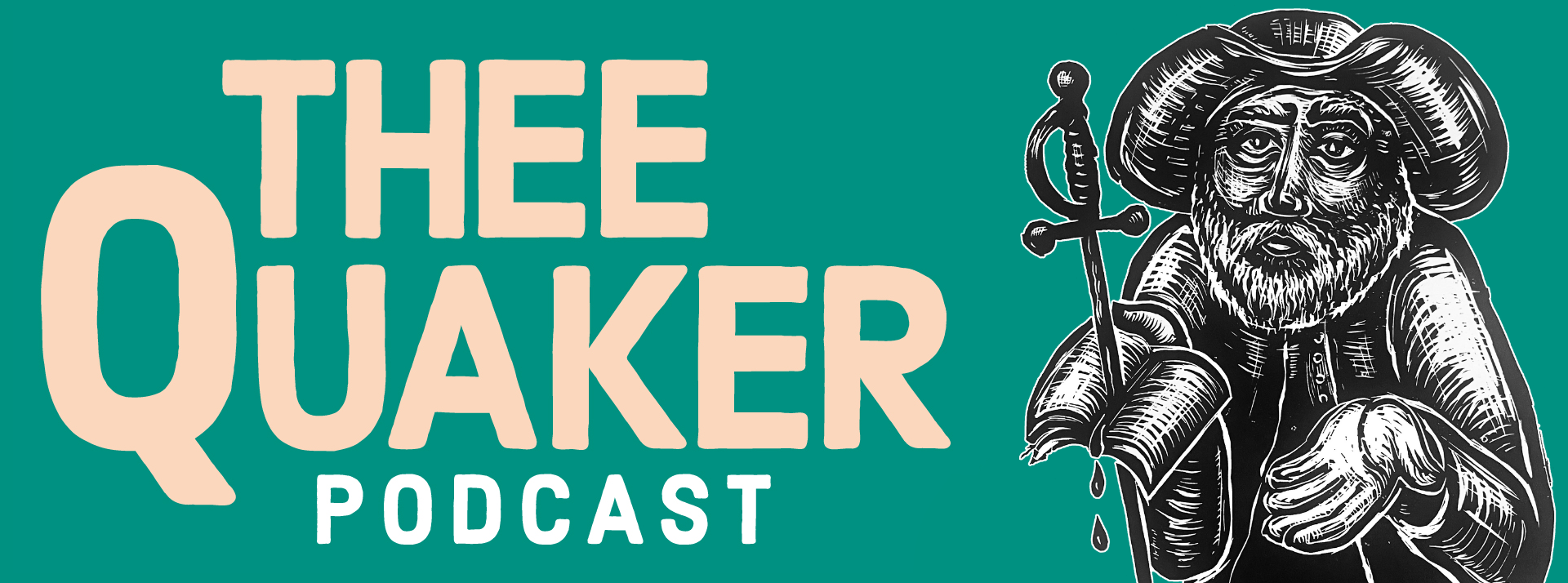

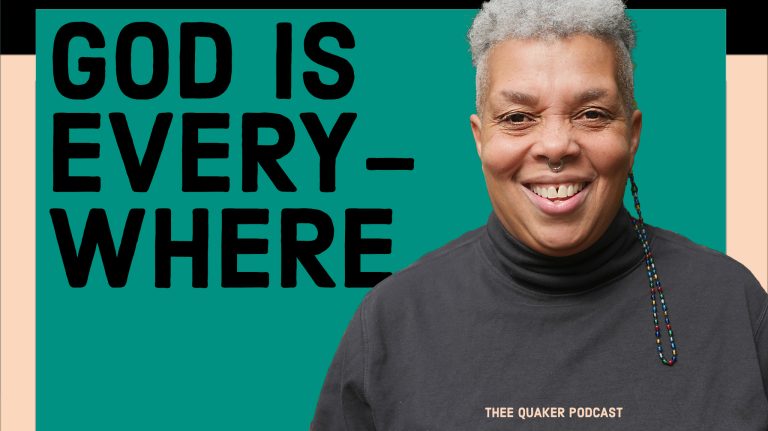
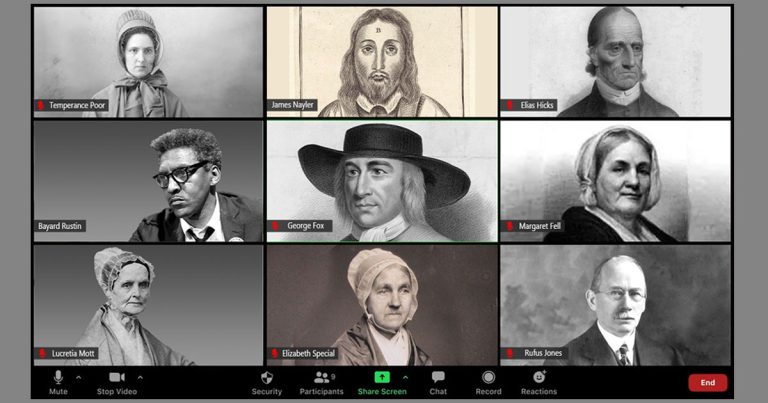
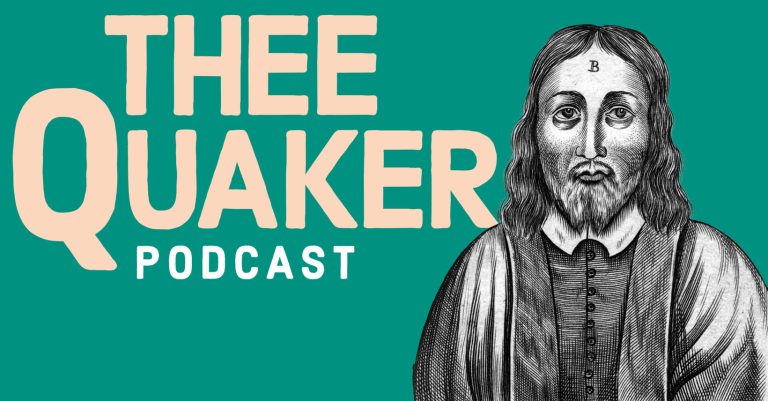
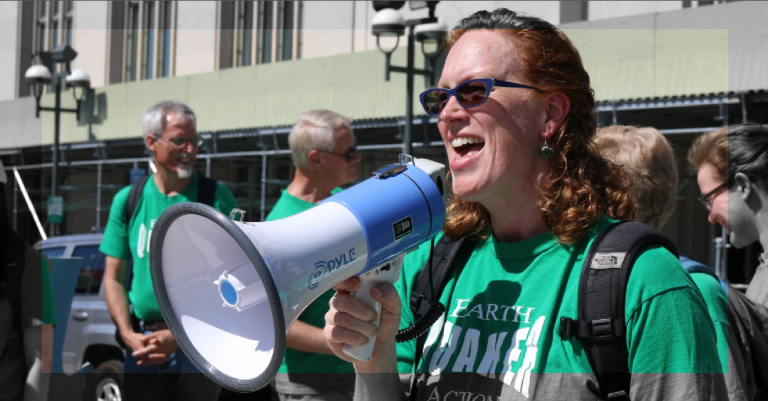
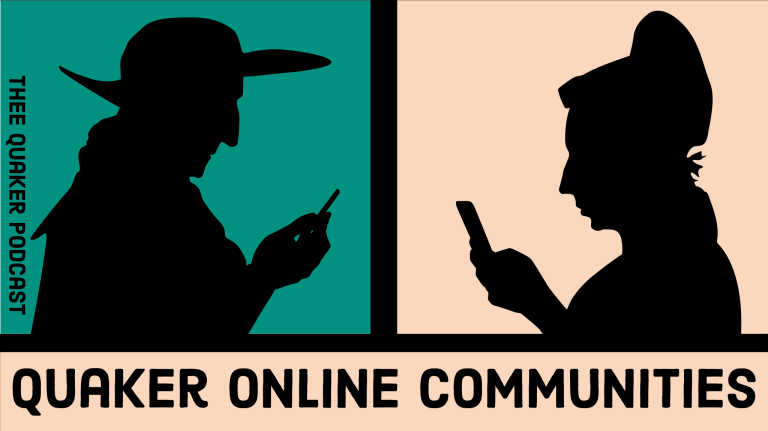
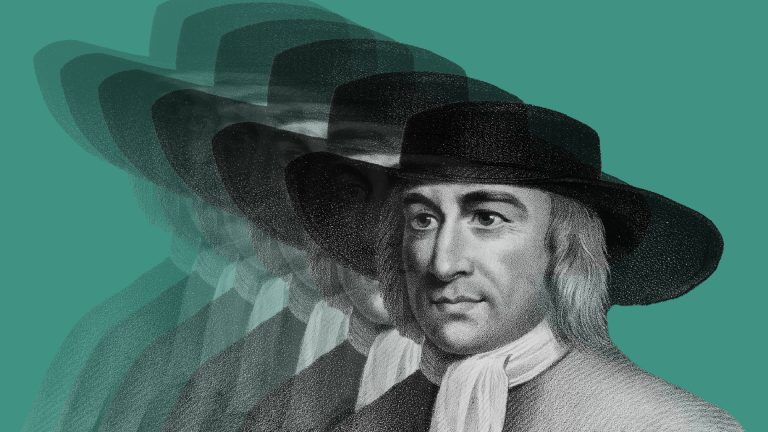
In my mind, this teaching goes back to the very foundation, that which set our forefathers and mothers apart from other religious people of the day. To believe in “that of God in every man” would naturally include woman! So perhaps this is why Quaker women were elevated in status and this was seen as a threat to more patriarchal groups.
Thanks for your comment, Edna. Totally agree.
For me Craig’s message was very refreshing-actually inspiring. Because it contradicts the mind (spirit, soul, etc) vs body duality of human exceptionalism wherein we rely on our mind to feel so sufficiently securely superior that we have no qualms literally enslaving the rest of creation . Though he does not word it strongly enough, his message clearly brings our body as God-living into a same relationship and dimension with all other God-living beings. And leaves open the possibility that we have the ‘exceptionalism’ picture totally backwards. Craig suggests the possibility that our mind is indeed an exception to the rest of nature, but not necessarily either beneficent or a reliable path to Truth. And that we have to unite all elements of who we are, body and mind together, as we disengage from the mis-concept of exceptionalism and start our long journey back, back to The Garden.
Tom, I love how you have highlighted the concept of exceptionalism although I did not use that term, or specifically call out that concept in my message. My way of putting it was: “The problem with humans is that our brains are too big,” and I stand by that. Indeed, it’s our self-image of intellectual superiority that justifies our “literally enslaving the rest of creation.” It’s so rewarding for me to see how you have identified that concept in my message. Thank you. And I so agree that uniting body and mind together is the part to disengaging from the concept of exceptionalism and living in “right relation” with others.
It was edited out of the podcast, but in the longer version of the message I played on the word “rest” and implied that we are more God-like when we just chill out – when we are at rest – when our minds are not racing and scheming to conquer ever more and more. I, for one, tend to experience God more when I am at rest; the idea that God is the “rest” of my body.
I find the word “within” expresses the relationship between my body and God, better than “contains”. “Contains” suggests exclusion, which is not consistent with Craig’s suggestion that God is active in all our bodies. I would expand the suggestion to see God’s miracles acting in ecosystems and galaxies, not only in systems we call living things.
And I am grateful to Craig and Thee Quaker and God for this reminder that God is present and active.
Thanks so much Fran. I agree that the concept of “within” is much better than the concept of “contain.” Thanks for writing that!
Excellent podcast! Thank you! have to agree with the weighty Friend in Craig’s Meeting who reminded him that God is neither male nor female. When queried later by Jon, Craig makes the point that he naturally thinks of God as male, since he believes God is within his body. This fits with the generally observed phenomenon that humans create God in their own image. But what of women, who see nothing but male images of God, and hear the male pronoun used repeatedly, even in Quaker circles? How can they see themselves as having God within?
I would suggest to Friend Craig that he could have said a couple of sentences about this, like he did when Jon queried him about how giving the message went for him. Then his message may have felt more inclusive of women.
Even though Quakers have said that women are equal since the beginning, largely due to the brilliant insights of George Fox and the huge influence of Margaret Fell, this is still an issue that deserves attention. Even among Friends, there is a shortage of references to God as anything other than male. During my year as a Resident Student at Pendle Hill, I found it necessary to remind an endless number of presenters, students, and teachers to use balanced gender language in referring to God.
I’d like to refer you to the book, “A God Who Looks Like Me: Discovering a Woman-Affirming Spirituality,” by Patricia Lynn Reilly, which explores the impact on women of hearing and seeing only male representations of God from early ages, and the concurrent shaming stories of Eve and Lilith so pervasive throughout all cultures. Healing from this early and ongoing bombardment of messages of unworthiness, shame, and disempowerment can be a long and difficult journey for women. Quakers have a role to play, as they always have, in empowering women to be able to see that of God within themselves. But this will most likely be successful if the images and languages referring to God are feminine, and women are encouraged to embrace feminine images of the Divine that they can relate to themselves. There needs to be a balance, and it needs to emerge from a consensus in our Society of Friends that we need to correct this imbalance, or prevent it by giving appropriately balanced messages about God to our young ones, both male and female. Boys also need to hear the message that God is neither male nor female, that both aspects are part of the Divine, so they can learn that girls are truly equal and not inferior.
Thanks for your thoughtful comments, Maggie. So helpful to hear how it is for women and girls – that you are bombarded with male-dominant images and messages – and that people like me have a responsibility to right the balance. I’m truly sorry it’s like that, and for my part in it, and that it’s you – presumably a woman – that has to do the reminding. Indeed I will strive to do better. Thank you for the encouragement.
And at the same time, it doesn’t feel right for me to tell someone that God is neither male nor female. I believe – and this is one of the things I love about Quakerism – that each person has the right to define God however they like. Even if I might think of my God as male, I need to do better at conveying and exemplifying that if someone wants to think of their God as female or non-male in any way, that’s perfectly, perfectly acceptable.
My Great great grandfather was Lewis Alden Estes from Durham Maine. I have attended meeting there.
Nice. Thanks for sharing that. I love our Meetinghouse and it’s fun to think of people visiting and considering the generations who have gone before.
Your question causes a realization that you don’t know where to look to find out who God is, which is, the Bible. It reveals the nature, character, and work of God. The Bible never attempts to prove the existence of God; rather, it assumes His existence from the very beginning (Genesis 1:1). Thinking correctly about God is of utmost importance because a false idea about God is idolatry. In Psalm 50:21, God reproves the wicked man with this accusation: “You thought I was altogether like you.” Perhaps you should be speaking on who God really is instead of a ‘what if’ question. Through the Bible (God’s Word) we know certain things to be true of God for one reason: in His mercy He has condescended to reveal some of His qualities to us. God is spirit, by nature intangible (John 4:24). God is One, but He exists as three Persons—God the Father, God the Son, and God the Holy Spirit (Matthew 3:16-17). God is infinite (1 Timothy 1:17), incomparable (2 Samuel 7:22), and unchanging (Malachi 3:6). God exists everywhere (Psalm 139:7-12), knows everything (Psalm 147:5; Isaiah 40:28), and has all power and authority (Ephesians 1; Revelation 19:6). He is the creator, and we are the created. What a marvelous body He made to protect us, as you attested to; originally meant to live forever, but grows old and dies because sin entered the world and death followed. In the Person of the Son, God became incarnate (John 1:14). The Son of God became the Son of Man and is therefore the “bridge” between God and man (John 14:6; 1 Timothy 2:5). It is only through the Son that we can have forgiveness of sins (Ephesians 1:7), reconciliation with God (John 15:15; Romans 5:10), and eternal salvation (2 Timothy 2:10). In Jesus Christ “all the fullness of the Deity lives in bodily form” (Colossians 2:9). So, to really know who God is, all we have to do is look at Jesus. I encourage you to read God’s Word (Bible). It is only there you will find that narrow path of truth. Jesus (God) said: I am the truth, the way, and the life. No one comes to the Father (God) accept through me (John 14:6). To the question of gender, I share this: From the very start in the Bible, God refers to Himself using masculine pronouns: “So God created mankind in his own image, in the image of God he created them; male and female he created them” ( Genesis 1:27 ). God refers to Himself from the beginning in masculine terms.
Hi Lori,
Apologies for taking so long to reply to your comment, but I just want to thank you for it. Clearly you spent a lot of time writing that comment so carefully, with all the bible references. Although we find God in different places, you and I, and it’s very impressive to see the depth of your faith. Thanks again for sharing all that.
Thank you Craig for encouraging Friends to consider a broader view of who and where God is. One of the things that attracted me to Friends was the origin of our name “Quakers” – that one would actually pay close attention to the bodily cue that the Spirit was moving in you – what a concept in a time where the Church portrayed the body as a gross impediment to godliness. I appreciate your offering the larger possibility that Divinity is not only in every human, but in every living thing. Indeed I would take that possibility a step further and say that perhaps Divinity is within all matter, miraculous at every scale from constituents of atoms to rocks, planets, suns – the entire universe. I hope your thoughts and queries are an opening for Friends to inhabit a more conscious, even intelligent, and responsive world! Perhaps we humans can be more compassionate companions to this amazing planet and every “thing” on it!
Hi Peggy,
Sorry it’s taken me so long to reply to your thoughtful comment.
My short response: YES! I totally agree that God can be found not just in people and other living things, but in ALL things. So true.
Thank you for making that point.
I am very intrigued by the practice of semi Programed Meetings for Worship having largely attended only Non Programed Meetings. Part of my intrigue is in the prepared Massages for a Meeting for Worship as it goes somewhat against the gain in a non Programed Meeting for Worship. I have at times received a message outside of Meeting for Worship, which overtime developed into a spoken message during Meeting for Worship. I am wondering if prepared messages enhances the worship experience? Does it promote greater participation from others or does it stifle participation?
Thank you very much for Thee Quaker Podcast I really enjoy it. I am wondering if you will highlight other Quaker ministers from non Programed Meetings?
Hi Douglas,
Thanks so much for bringing your question about prepared messages.
It’s hard to say if, categorically, prepared messages enhance worship and/or incite greater participation. I think it depends on the actual message and the genesis and motivation behind it. Like with all messages brought to Quaker Meeting.
What I am willing to say is that prepared messages, just by virtue of being prepared in advance, are no more or no less valid or worthy than spontaneous messages. All spirit-led messages are worthy, regardless of whether they came to the deliverer before meeting or during; and whether spoken out loud or not.